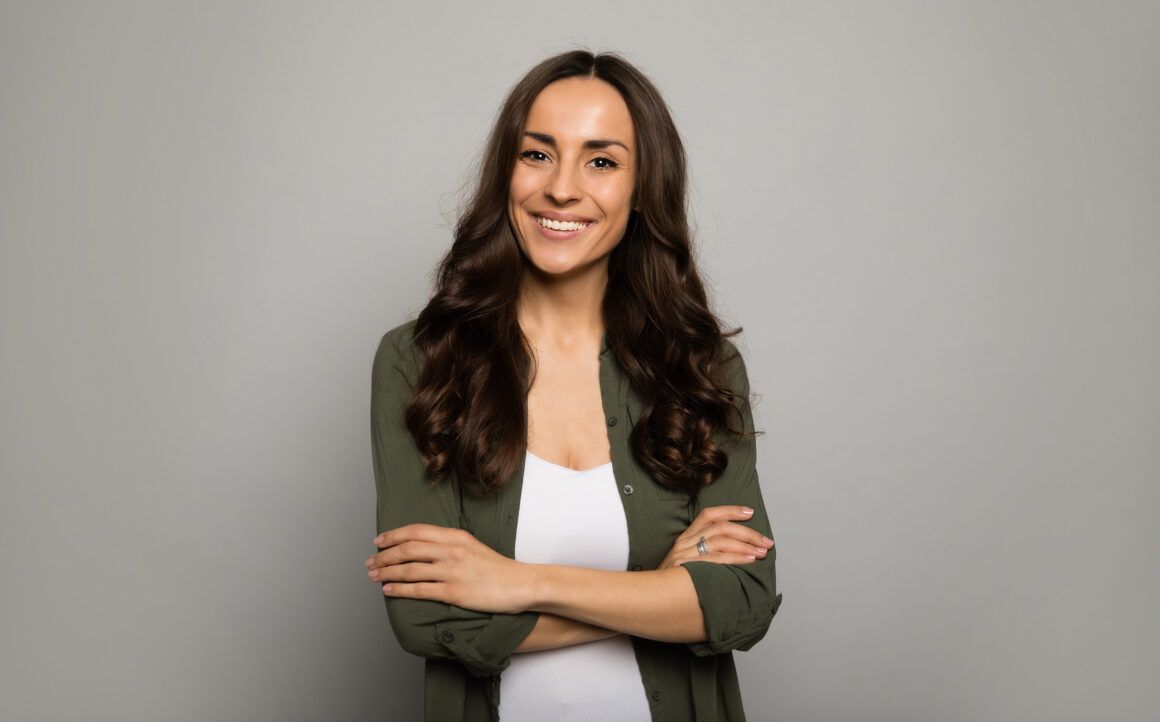Communication is Key: Green Flags That Indicate a Healthy Relationship
By Remy Meraz • August 30, 2023


From the moment we start dating, we're looking for signs that the person we're with is right for us. Love and affection are a great start to a relationship. Unfortunately, it's not enough. A healthy relationship requires two individuals with good communication skills to bring mutual trust, respect, and admiration to the table.
It also requires two secure individuals willing to put in the work to keep the relationship on track when challenged. Here are some green flags to look out for when dating someone new and as the relationship evolves.
They take accountability for their behavior, actions, and choices.
If someone doesn't own up to their actions and admit when they're wrong, there's no growth in a relationship. Someone must recognize when they're wrong without being overly defensive, gaslighting you, or pretending something didn't happen.
If someone has done something that has caused harm to the other person, they should be able to acknowledge their wrongdoing, apologize and work with you to rectify the situation. Their ability to do this demonstrates their maturity.
For more on this topic, check out Unveiling the Dark Art of Gaslighting: Real-World Gaslight Examples and Experiences.
Their words are congruent with their behavior.
If someone truly wants to be in a relationship with you, they will make sure you know. They'll tell you what you mean to them and why they want to be with you. There will be no guessing games for you to decipher; instead, they will show you what's on their minds through their actions, effective communications, and invariably one or several of the five love languages.
They don't make promises they don't intend to keep, nor insincere apologies. They are consistent with their actions, follow through on their commitments, and don't make excuses for not doing so.
They are proactive about healing and personal growth.

Psychologist Martha Beck and author of Finding Your Own North Star, describes two kinds of people: those who are proactive about healing and personal growth and those who aren't.
If you want to be happy in your relationship, you need to find someone who prioritizes personal development and spiritual growth. They will consider themselves lifelong learners and know that doing inner work is not a destination but a continuous journey.
It doesn't mean perfection — because no one is. It means awareness of their hang-ups and triggers and proactively working on them. They care enough to do the work to better themself individually and together to be the best partner possible.
Remember, we often subconsciously attract the people we need to help us heal wounds from our past. The most important thing is that you're both willing to do the work necessary to heal the wounds, even when uncomfortable or challenging. You are both listeners to understand.
Discover more about the best books on this topic in our detailed guide.
You will know they're vested in themselves and the relationship when they're willing to put time, money, and energy into their personal and spiritual growth. Therapy, coaching, reading self-help books, listening to podcasts, or attending workshops shows that your partner is doing the work.
For a related topic check out: How to stop being jealous: expert advice for a healthier relationship.
They're supportive of your dreams and goals.
A great partner is interested in what lights your fire. They want to know about your passions and goals because they're invested in you. This interest can go beyond just wanting to get to know you — it also means being supportive of your dreams, even when they have nothing directly to do with your relationship or are unaligned with their interests.
In the same way that a good partner is supportive of your goals, they also take pride in your accomplishments — large and small. When something goes well for you, they're genuinely happy for you, and they'll do whatever they can to support you in achieving your dreams and goals.
They have a high EQ.

Emotional intelligence is also known as EQ or IE and according to Psychology Today, emotional intelligence refers to one's ability to identify and manage their own emotions and the emotions of those around them.
A partner with a high EQ is very perceptive and can tell when something is wrong. But beyond knowing if something is wrong, they will also be able to figure out the problem, and their partner's specific emotion, and then find an effective way to deal with it.
If you both have high EQ, it will be easier for you to communicate and collaborate with one another, stay in love, and work through your problems together.
They treat you with kindness and respect.

Kindness and mutual respect are vital to a healthy relationship. Without either, there is no trust. Without trust, the relationship will fall apart.
Kindness needs to be demonstrated through words and action and should be consistent whether alone or in the company of others. Respecting you includes your individuality, independence, time, body, physical space, and boundaries.
Side note, an overindulgence of attention and kindness too fast too soon may be a red flag for love bombing which is consistent behavior in abusive relationships and narcissists.
The most critical tell-tale sign of their emotional intelligence is if they treat you in a kind, respectful manner when you disagree or are upset. You shouldn't be afraid to disagree with your partner. When there is a disagreement, it shouldn't feel like your partner is attacking you, insulting you, or attempting to control you.
They have healthy boundaries.
Boundaries are a necessity and it's crucial that your partner understands how to create, honor, and respect them.
A big part of healthy relationships is respecting each other's boundaries and not pushing them just because you want more. Good partners know when to take a step back and let the other person recharge and they do so without guilt-tripping them into getting what they want. A solid relationship is built on mutual respect and open communication, not manipulation or one-sided power dynamics.
They know how to communicate clearly and honestly.

Your partner will be a good listener, pay attention to body language, and make eye contact when communicating with you. Both individuals can be open and honest about what they want, need, and feel without fear of judgment or abandonment.
When expressing feelings, there is "I" vs. "you" language. For example, instead of saying, "It pisses me off that you're always late." they will say, "When you're consistently late I feel like you don't value my time." Addressing the action or behavior is clear, honest communication without making the other person feel attacked or blamed.
They're willing to have courageous conversations.
Courageous conversations are needed when making decisions or having conflicts around sensitive topics such as money, parenting, sex, politics, or social issues.
For instance, in navigating difficult times, if you are involved in an interracial relationship, can you have a courageous conversation about race and racial equity with your partner? Or perhaps there's a deepening interracial dialogue at work addressing racial tensions, and it's uncomfortable for the partner to share. Does the relationship hold a safe psychological space for the person speaking to be vulnerable and honest, even with differing views and opinions?
These types of conversations require critical listening skills and involve one's ability to listen and focus on the speaker and the speaker's message. It involves understanding the message and evaluating it while separating facts and opinions. Again, this requires an emotionally intelligent, empathetic partner who avoids making judgments.
The Takeaways
Healthy relationships require two fully self-actualized people who bring out the best in each other and help each other evolve into their best possible selves. The more emotionally mature and self-aware you are as an individual, the healthier your relationship will be as a couple.
Read more about: Healthy Relationships
About Remy Meraz
Remy Meraz, co-founder, and CEO of Zella Life, is a visionary leader who leveraged corporate glass ceiling challenges as a woman of color to drive systemic change.
While leading and cultivating high-performance teams from VC-backed startups to Fortune 500, she consistently faced obstacles such as inadequate mentorship, lack of psychological safety, and non-personalized training. Taking matters into her own hands, she turned to executive coaching and NLP training. This life-changing growth experience led to breaking leadership barriers and a passion for cognitive psychology.
Motivated by her experiences, she co-founded Zella Life, an innovative AI-driven coaching platform bridging the talent development gap by enhancing soft skills and emotional intelligence (EQ) in the workplace.
Her vision with Zella Life is to transform professional development into an inclusive and impactful journey, focused on the distinct needs of both individuals and organizations. She aims to promote advancement and culture change by ensuring every professional's growth is acknowledged and supported.
Today, Remy is recognized as an influential innovator, trainer, mentor, and business leader. Under her leadership, Zella Life has delivered significant measurable outcomes for numerous well-known brands. This track record of positive outcomes garnered attention and funding from Google for Startups and Pledge LA, establishing Zella Life as a pivotal force in the learning and development arena tackling and resolving fundamental talent development issues for organizations of all sizes.